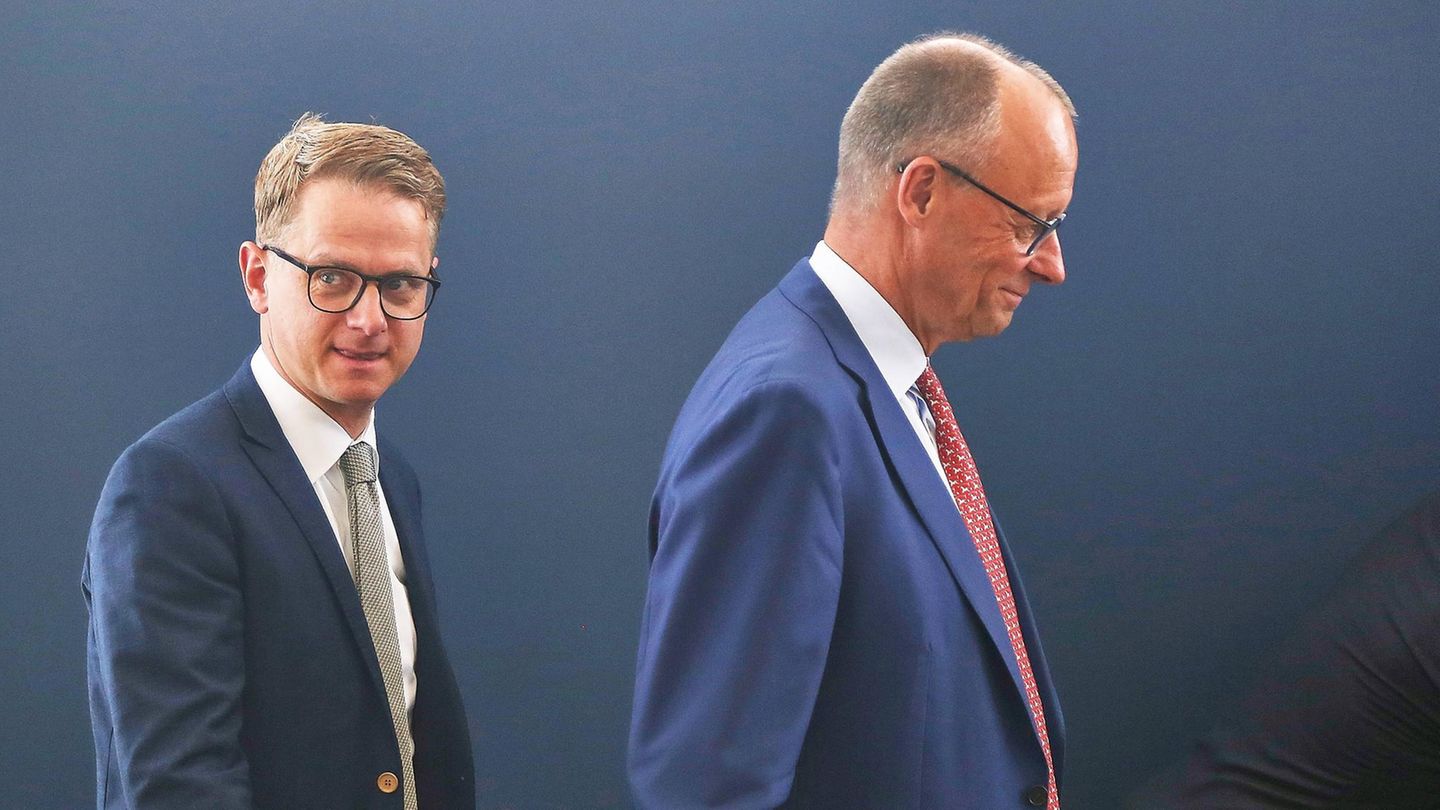Turkey vows revenge after the attack in Ankara and is attacking “terrorist targets” in Iraq and Syria. Syrian militias speak of attacks on civilians and several deaths.
After the attack in Ankara that left at least five dead, Turkey blamed the outlawed Kurdish Workers’ Party (PKK) and attacked targets in northern Syria and northern Iraq. According to the Defense Ministry, 47 “PKK targets” have been attacked from the air and numerous “terrorists have been neutralized.” Kurdish militias in Syria said at least twelve civilians were dead.
The PKK, which is classified as a terrorist organization by Turkey, the EU and the USA, has not yet claimed responsibility for the attack. The PKK has been fighting against the Turkish state since the 1980s.
At least five people were killed and 22 others injured in Wednesday’s terrorist attack on one of Turkey’s most important arms companies. The two suspected attackers were also killed, said Interior Minister Ali Yerlikaya. He spoke of a man and a woman. The Turkish broadcasting authority Rtük had imposed a news blackout about the attack.
Erdogan: Attack on the driving force of the Turkish defense industry
The target of the attack, the Turkish Aerospace Industry (Tusas), is a subsidiary of the state Defense Industry Agency. Four of the five victims were employed by her.
Turkish President Recep Tayyip Erdogan spoke of a “cowardly attack” on a key figure in the Turkish defense industry. The company is, among other things, a major producer of combat aircraft and drones.
According to analyst Murat Yetkin, Turkey is using Tusas drones in the fight against both the PKK and the Islamic State (IS) terrorist militia. Turkey regularly takes action against the PKK, which has its headquarters in the Qandil Mountains in northern Iraq, as well as against the Syrian Kurdish militia YPG in northern Syria, which it sees as an offshoot of the PKK.
The Turkish military had begun attacks in Iraq and Syria before it announced that it had identified both perpetrators as PKK members. The pain for the victims is great, but the strength for revenge is greater, said Defense Minister Yasar Güler, according to the state news agency Anadolu.
The YPG-led Syrian Democratic Forces (SDF) wrote that Turkey had attacked civilian infrastructure, crowds and security forces in northern and eastern Syria. At least twelve civilians were killed and 25 other people were injured, some seriously.
Attacks by several groups in the past
The attack occurred shortly after the ultra-nationalists of the MHP party surprisingly discussed the possible release of PKK leader Abdullah Öcalan. The MHP is Erdogan’s government partner. However, their boss Devlet Bahceli had linked a possible release to the disarmament of the terrorist organization. Observers see this as a sign that there could possibly be a new peace process between the government and the PKK.
On Wednesday, Öcalan, who is in solitary confinement, was allowed to receive visitors for the first time in years. From prison he said: “If the conditions are right, I have the theoretical and practical power to take this process from the level of conflict and violence to a political and legal level.” It is unclear what impact the attack will have on any resumption of peace negotiations.
In connection with a possible rapprochement, political analyst Sinan Ülgen sees two signs that could be behind the attack if there is a connection to the PKK. “It could have been an attack that was not carried out in accordance with the PKK’s command structures, for example an independent arm of radical parts that wanted to torpedo the process,” said Ülgen. Or it could be a message from the PKK to the Turkish government that they need to approach the current leadership of the PKK more directly and that going through Öcalan, who has been imprisoned since 1999, is not enough.
According to Ülgen, there is a domestic political calculation behind the ultranationalists’ overtures: According to the constitution, Erdogan cannot run again unless parliament requests new elections or the constitution is changed. However, there is a lack of majorities for both, which is why they are looking for new partners, such as the pro-Kurdish Dem party.
In Turkey, both IS, the left-wing extremist Revolutionary People’s Liberation Front DHKP-C and the PKK have carried out serious attacks in the past, including in Ankara.
Source: Stern
I have been working in the news industry for over 6 years, first as a reporter and now as an editor. I have covered politics extensively, and my work has appeared in major newspapers and online news outlets around the world. In addition to my writing, I also contribute regularly to 24 Hours World.




